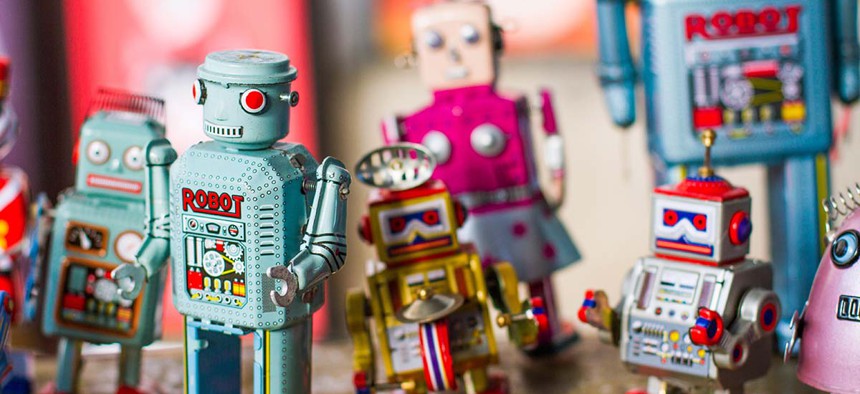Tax the Robots? 'No Way,' Says EU Official Tasked With Preparing Europe For a Digital Future

Caracarafoto/Shutterstock.com
He believes a tax would discourage automation technologies from staying and innovating in Europe.
The leader of the EU initiative tasked with preparing Europe’s workforce for changing jobs doesn’t think that taxing robots is a good idea.
As machines take on more human work, at least some human workers will lose their jobs. Bill Gates has proposed a simple solution for this conundrum: Governments should tax robot workers’ productivity in the same way they tax human workers.
In a February interview with Quartz, Gates argued that governments could use the revenue to fund social safety-net programs and support jobs that still require human empathy and understanding.
Andrus Ansip, the EU Commissioner in charge of the push for streamlined digital regulations across Europe, including initiatives to equip workers with digital skills, discussed the robot tax at a conference in Vienna on Thursday. His opinion was clear.
“No way, no way,” he said, according to CNBC, when asked whether he would support the robot tax.
Ansip said that he didn’t think it was appropriate to “tax progress” and that doing so would discourage automation technologies from staying and innovating in Europe. “I fully agree that we have to tax bad habits, for example pollution, or smoking, or drinking alcoholic drinks, this I can understand,” he said. The EU considered and rejected a proposed robot tax in February.
The robot tax idea has so far found few supporters, but a growing handful of outspoken detractors. In March, US economist Larry Summers wrote in an op-ed that a robot tax would be difficult to administer, because it is not clear how to classify a “robot” and that “a sufficiently high tax on robots would prevent them from being produced.”
Summers and Ansip both agree that the employment shifts caused by technological automation need to be addressed. Though Ansip said during the panel discussion in Vienna that “progress [has] always created more jobs than progress used to destroy,” he also acknowledged that increased automation will mean “a lot of people will lose their jobs.”
The effort Ansip favors for addressing those losses is more familiar than the idea of a robot tax. As many generations have proposed when faced with the possibilities of machines taking their jobs, he’s betting on reskilling and education that prepares workforces for new jobs that may be created as others are eliminated. “Our municipalities, national parliaments, the European Union and also entrepreneurs, business people need to provide skills to those people who will lose their jobs,” he said.





